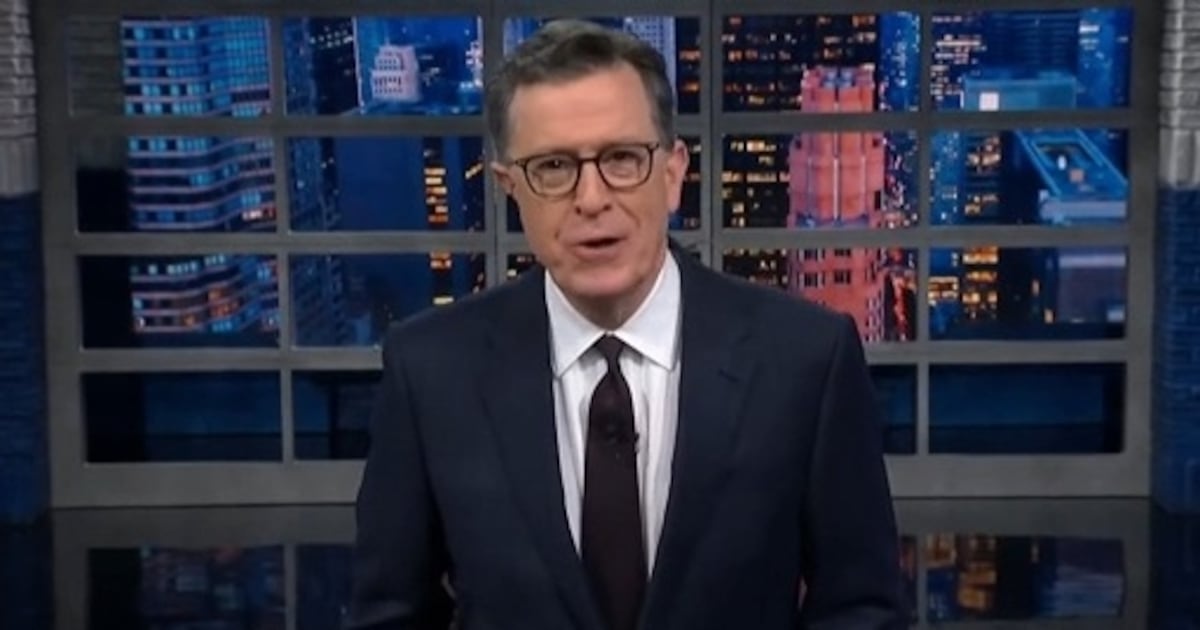There hasn’t been a lot to laugh about over the past two years, which might be why South Park has been relatively dormant. Trey Parker and Matt Stone’s animated Comedy Central hit has long rooted its humor in timely concerns, and while that’s continued to be true during the pandemic, it’s resulted in only a quartet of COVID-era specials, the last of which—November’s South Park: Post Covid and December’s follow-up, South Park Post Covid: The Return of Covid—imagined a dismal future in which the world was still grappling with the viral plague. Thus, as the series finally returns for a proper season (its 25th), it remains to be seen how regularly Parker and Stone will address our ongoing global nightmare—although at least on the basis of its eagerly anticipated premiere, the show doesn’t seem likely to stop pushing topical buttons.
“Pajama Day” kicks off the latest South Park run with Kyle, Stan, Cartman and their colorful classmates going back to school following a break marred by “a few distractions.” While it’s not hard to deduce what that refers to, COVID isn’t overtly mentioned once during the ensuing, extremely silly half-hour. Rather, the initial center of attention is Mr. Garrison, who regales his students with tales about his new affair with a gray-haired and mustached gentleman named Rick, whom he far prefers to his “narcissistic psychopath” prior beau Marcus. This wholly inappropriate narrative is soon interrupted by both an appearance by Rick (who finds his presence in the classroom awkward), and a call from Marcus that goes haywire when the kids—who’ve been ordered by Mr. Garrison to stay quiet—refuse to help back up their teacher’s claims to his ex. Their silence sends Mr. Garrison into an abject tizzy, thereby attracting the notice of PC Principal, who views the fourth graders’ disobedience as so disrespectful that he does the unthinkable: He prevents them from wearing pajamas at the school’s upcoming Pajama Day.
“We keep not doing anything wrong, and we keep getting fucked!” laments Cartman about this punishment, and that sentiment is one of the episode’s many thinly veiled allusions to America’s present state of mind. When Wendy asks PC Principal to reconsider, he counters by declaring that in order to project strength and leadership, he has to stick to his guns—and then derides Wendy and her friends for making Nazi Germany references just because they haven’t gotten what they wanted. It’s not long before just about everyone is slandering PC Principal’s stance as the sort of measure that only a goose-stepping Third Reicher might love, including a local TV news reporter who goes from casually dropping German phrases into his broadcasts to wearing an SS uniform and screaming at kids as a Deutschland band plays in the background.
South Park’s residents are so outraged by PC Principal’s anti-Pajama Day actions that they retaliate by publicly wearing their pajamas in a show of support for the kids. As is often South Park’s specialty, this sweeping sleepwear movement takes place to the tune of an absurdly cheery ditty—here, a buoyant kids song whose lyrics ask “What time is it?” and then answer, “Pajama time!” What begins as a communal act of solidarity, however, quickly turns into a contentious craze, since some South Park citizens decide that they don’t want to wear their pajamas, and vehemently object to being ridiculed at work, or denied entry to IHOP, for their choice. Once the police become involved, arresting pro- and anti-pajama folks alike, South Park devolves into a familiar powder keg.
Parker and Stone aren’t subtle about their pajamas-as-masks metaphor, but then, who tunes into South Park for subtlety? Frustratingly, though, “Pajama Day” lacks a clear point of view—a shortcoming that often mars these ripped-from-the-headlines (and rushed-through-production) installments. Since everyone is eventually decried by their enemies as Nazis, the material’s true satirical target is revealed to be our overheated rhetoric-of-demonization. Yet without more focus, such skewering feels unnecessarily scattershot, as if the show doesn’t want to come down on either side of the persistent public safety-vs.-personal freedom mask divide. In place of boldly taking a stand, the episode goes vague and, consequently, comes off as soft.
Still, there’s humor to be found in “Pajama Day,” much of it coming from the mockery of one of Parker and Stone’s favorite targets. Rallying his fellow students to fight back against this anti-Pajama Day injustice, Cartman tells the kids to remember what Matt Damon says in his recent bitcoin commercial: “Fortune favors the bold!” Of course, even Cartman admits that those courageous enough to listen to the actor have lost all their money—a jab that’s repeated at multiple points throughout this premiere, as when Cartman reminds everyone to be brave, “but not too brave or else Matt Damon will come and take all our money.” In response, a comrade asks, “Can we lay off the Matt Damon jokes please, they’re just getting old.” But of course, they’re not—nor do Parker and Stone truly believe they are, given that they’ve been poking fun at the Oscar winner since 2004’s Team America: World Police.
While Matt Damon receives no reprieve by the conclusion of “Pajama Day,” the rest of South Park is saved when PC Principal, during a conversation with Wendy, hits upon an inspired remedy for the crisis he’s created: to cancel Pajama Day and, instead, make it Opposite Day! This isn’t quite the tack suggested by Wendy, whose wise advice—“Saying you’re wrong is sometimes the strongest thing you can do”—goes totally unheeded. Nonetheless, it allows everyone to at least temporarily temper their anger, thus proving the sort of neat-and-tidy solution that, alas, doesn’t seem very applicable for our current fractured-society circumstances.







